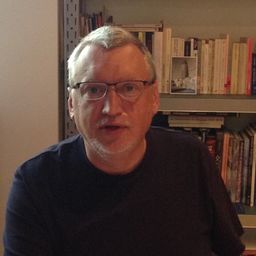
Stéphane Dawans teaches philosophy and humanities & social sciences at the Faculty of Architecture of the University of Liege. In addition to issues of philosophy or theory of architecture, he concentrates on heritage issues, convinced that this field of research has everything to gain from an interdisciplinary approach and the use of new tools, including those borrowed to logic, analytical philosophy or ontology of art.
Sessions in which Stéphane Dawans participates
Sunday 5 June, 2016
With his expression "ceci tuera cela," Hugo established almost two centuries ago a strong link between words and stones as transmission vehicles of human memory. We heritage experts would be inclined to consider stones as more reliable than words, what semiology seems to confirm: stones are clues, and clues are, according to Roland Barthes, tangible proofs of “what has been.” But the inspector Columbo has often shown how we can play with these clues, and Umberto Eco would easily forgive us th...
Sessions in which Stéphane Dawans attends
Friday 3 June, 2016
Welcome addresses and cocktail, followed by the Concordia Signature Event "The Garden of the Grey Nuns". As the opening ceremony and cocktail take place in the former Grey Nuns' Motherhouse, recycled into campus residence and reading rooms by Concordia University, delegates will also have the possibility to discover the video Three Grey Nuns (3 minutes, by Ron Rudin and Phil Lichti. Three Grey Nuns recount their memories of communal life in the Grey Nun’s Motherhouse. Built...
Saturday 4 June, 2016
What if we changed our views on heritage? And if heritage has already changed? While, on the global scene, states maintain their leading role in the mobilization of social and territorial histories, on the local scale, regions, neighbourhoods and parishes have changed. Citizens and communities too: they latch on to heritage to express an unprecedented range of belongings that no law seems to be able to take measures to contain, often to the discontent of...
Most of what we experience as heritage emerges into conscious recognition through a complex mixture of political and ideological filters, including nationalism. In these processes, through a variety of devices (museums, scholarly research, consumer reproduction, etc.), dualistic classifications articulate a powerful hierarchy of value and significance. In particular, the tangible-intangible pair, given legitimacy by such international bodies as UNESCO, reproduces a selective ordering of cul...
Sunday 5 June, 2016
"What does heritage change?" is a multifaceted question to which the answer(s) are in primary respects related to real-life negotiations among different groups of citizens, cultures, races, ethnic groups, sexual identities, and social classes about received, official and/or widely accepted or accomodated intangible attributes, cultural traditions, historic monuments, buildings, and other transmitted or revived historical legacies. Heritage designated by and for whom, for what motivations, an...
Monday 6 June, 2016
Dans le cadre d’une réflexion pluridisciplinaire croisant anthropologie, archéologie, architecture, géographie, histoire, politologie, cette séance propose des lectures empiriques du patrimoine matériel et immatériel en situation conflictuelle. Le patrimoine sera interrogé en tant que construction sociale à valeur symbolique, catalyseur d’appropriation et/ou de fabrications identitaires et objet de discours mémoriels. Dans des contextes politiques autoritaires, et où la contestat...
This proposal makes the case that heritage’s capacity for change may be dependent on a paradigm shift in how heritage is interpreted. With this paradigm shift in play, a question is then asked: Can authenticity be used as a design driver to resolve how best to incorporate the four pillars of sustainability in a building’s design? The proposal begins with a discussion about the difference between using heritage reactively and proactively. It then presents a brief introduction to the...
Le patrimoine fait aujourd’hui l’objet d’attentions autant que d’agressions et de destructions. Cela peut s’expliquer par les difficultés de son identification ou de sa conservation. Cela peut plus profondément s’expliquer parce que, dès le départ, il célébre un événement ou conserve une mémoire qui peut être ou devenir une source de dissenssions et de conflits politiques. Enfin, sa reconnaissance suscite des gains économiques pour les uns mais des pertes pour les autres. Mais peut-être...









